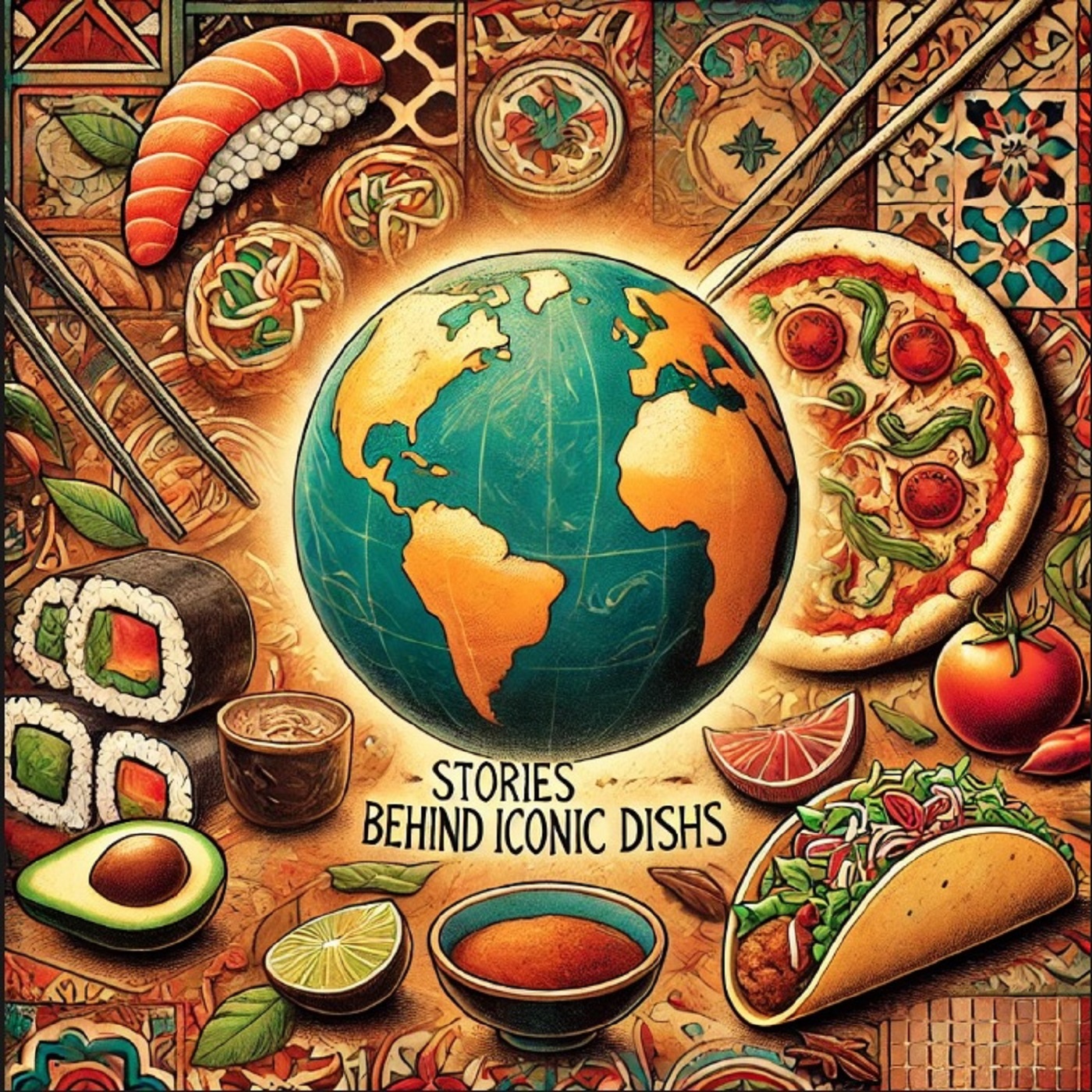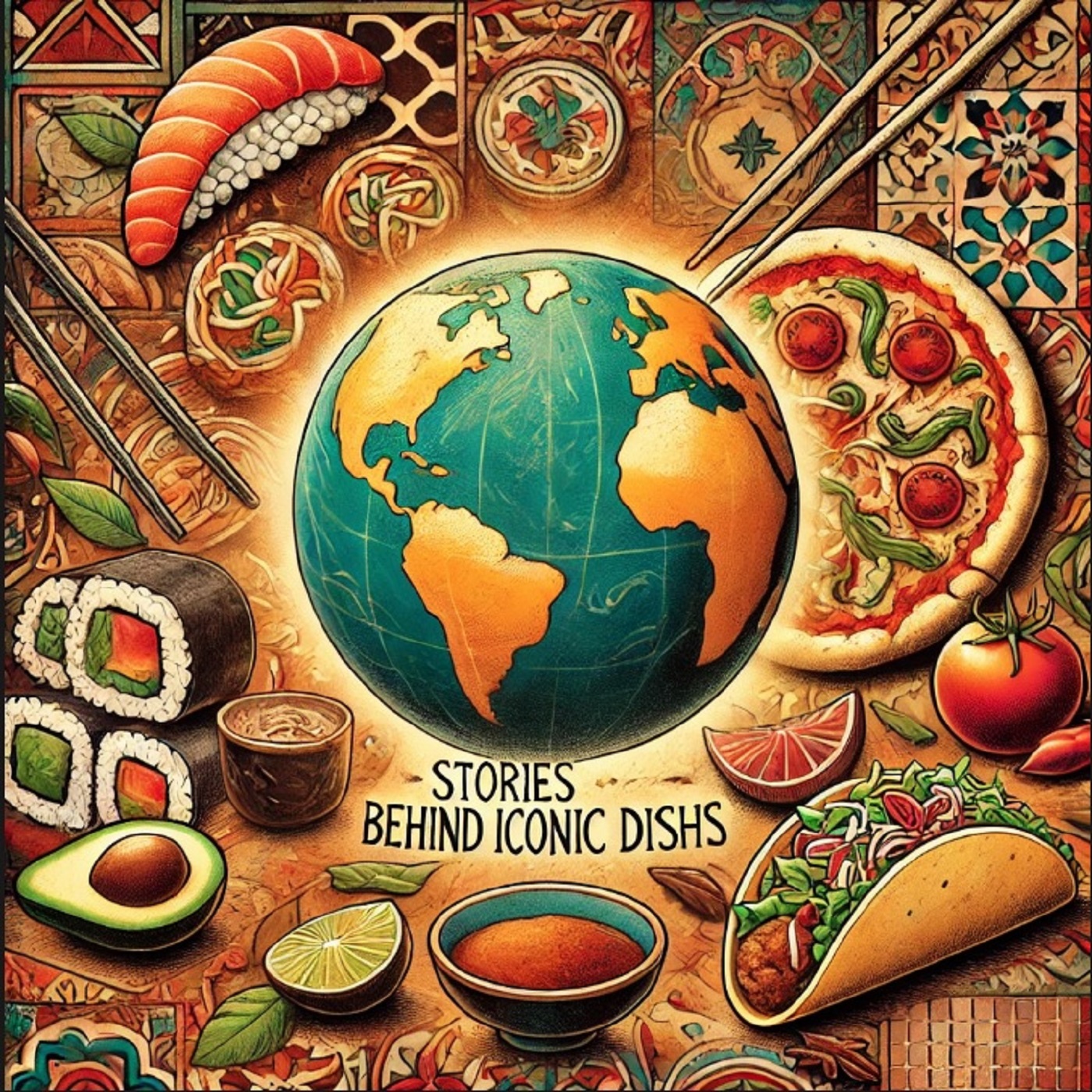This episode explores the journey of sushi rolls from their traditional Japanese roots to their global reinvention. Originally developed during Japan’s Edo period, rolled sushi (makizushi) emphasized simplicity, balance, and seasonal ingredients. The California Roll, created in Los Angeles in the 1960s, marked sushi’s transformation abroad, adapting flavors for Western palates and sparking a wave of creative variations.
We contrast Japan’s traditional rolls—hosomaki, futomaki, and temaki—with modern fusion versions that incorporate ingredients like cream cheese, mango, or spicy sauces. The art of rolling, slicing, and presenting sushi highlights the craftsmanship and aesthetic values at the heart of Japanese cuisine.
Ultimately, the episode frames sushi rolls as cultural ambassadors: they honor heritage while embracing innovation, showing how a dish can adapt across borders without losing its soul.

In this episode, we explore the enduring legacy and global evolution of the taco. Beginning with its origins in ancient Mesoamerica, where indigenous peoples...

This episode traces the rich and flavorful history of Indian curry—from its ancient Ayurvedic roots in the Indus Valley Civilization to its global evolution....

This episode explores falafel’s origins, anatomy, cultural symbolism, and global journey. Believed to have originated in Egypt as ta’amiya made from fava beans, falafel...